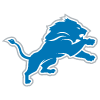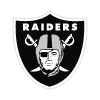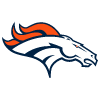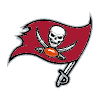NFL’s five most overperforming/underperforming units of 2022 season: Geno Smith, Seahawks soared
Over the past few seasons, I have been identifying overperforming and underperforming units using a model I created that seeks to measure the difference between preseason expectations and actual game outputs. In order to come up with the preseason expectation rankings, I project each team’s win share by unit. Preseason projections are more subjective than postseason win-share metrics, as the preseason rankings blend more certain factors (veteran personnel, free-agent signings, salaries) with less certain clues (how the new draft class is likely to impact production, how injuries will come into play). Actual game outputs are calculated based on the unit’s actual win share in each game played. (Reminder: My win-share figure is defined as the measurement of how each player, position group and side of the ball impacts a team’s ability to earn first downs and touchdowns, as related to wins. And yes, these can be negative.)
The whole point is to apply structure with as little bias as possible, in order to interpret on-field production with the situations that led to specific outcomes — and then, for the purposes of this exercise, compare the final figures to expectations. The goal here is to identify the units with the biggest difference between preseason forecast and postseason win share.
NOTE: Win-share rankings note where a unit is positioned league-wide.
Related Links
- All-time Super Bowl QB rankings: Where do Patrick Mahomes and Jalen Hurts land?
- Tom Brady's retirement marks first significant move in 2023 NFL offseason quarterback market
- 2023 NFL Draft: Five players who stood out in Tuesday's East-West Shrine Bowl practices
- Super Bowl-bound Eagles among NFL teams succeeding with aggressive roster-building tactics
- RB Index: Eagles' Miles Sanders among four running backs I was wrong about in 2022
- Tom Brady's the G.O.A.T. of G.O.A.T.s, Andy Reid's Super man and Sean Payton's the Broncos' savior
So, without further ado, let’s get to the meat of this file: The five most overperforming and underperforming units of the 2022 NFL season. The strengths and shortcomings highlighted below may end up being big factors in teams’ 2023 offseason approaches, decisions and strategies.
OVERPERFORMING UNITS
PRESEASON WIN-SHARE RANKING: 24th. FINAL WIN-SHARE RANKING: 14th.
I don’t have a way to isolate the win share of deep passes, but I can say that Geno Smith’s deep passing, especially early in the season, drives much of this final ranking. Next Gen Stats shows that Smith’s 13 deep touchdown passes (20-plus air yards) paced the NFL in 2022. Nine of those came in the first eight weeks, and that hot start (Seattle went 5-3) changed the course of the Seahawks’ season. In the category of downfield passes (all pass attempts of 10-plus air yards downfield), Smith’s 27 TDs are tied for the most, with Josh Allen — and Smith had one fewer interception than Allen on those attempts (eight to Allen’s nine). Smith’s 112.8 passer rating on such passes ranked third among all QBs who attempted more than 50 downfield passes.
The Seahawks’ pass catchers ranked 14th in win share before the season, but the combination of the O-line (which started ranked 30th and ended the season at 25th) and uncertainty at QB drove the low forecasted effectiveness of the passing offense. Smith far exceeded that forecast, setting a franchise season record for completions (399), attempts (572), completion percentage (69.8) and passing yards (4,282). He was also the first Seattle QB to lead the NFL in completion percentage since Dave Krieg in 1991 (65.6 percent).
PRESEASON WIN-SHARE RANKING: 25th. FINAL WIN-SHARE RANKING: 13th.
If someone had told me at the beginning of the season the Lions would end up ranking here even after trading away tight end T.J. Hockenson in November, I wouldn’t have believed it myself. Of the major offseason additions to the pass-catching corps, first-round pick Jameson Williams was not guaranteed to even see the field in 2022 coming off a torn ACL, and though free agent DJ Chark was a plus, he didn’t inspire a huge shift in forecasted total output for an offense that recorded the lowest average depth of passing target in 2021 (6.8, per Pro Football Focus). The numbers — including the offensive line’s preseason ranking of fifth in win share, which ended up being consistent with its sixth-place finish — suggested Detroit’s offense would likely rely on the run to set up a short passing game. It did play out that way, but between the scheme and quarterback Jared Goff’s execution, the passing offense was so much more valuable than originally forecast.
Per Next Gen Stats, Goff had the second-most TD passes on attempts of 9 air yards or less (19, with zero interceptions) and the second-best passer rating on such passes (106.4) among passers with at least 50 such attempts, with only Patrick Mahomes outproducing Goff in both categories. And to round it out, Goff throw in 10 TD passes of 10-plus air yards (with seven interceptions). The Lions ended the season scoring the fifth-most points per game (26.6) in the NFL, and the offense drove 2.2 more wins than the defense, the biggest offensive-defensive win-share imbalance in the NFL this season.
TREVOR LAWRENCE’S PRESEASON WIN-SHARE RANKING: 24th. TREVOR LAWRENCE’S FINAL WIN-SHARE RANKING: 13th.
This one’s a bit of a cheat, since one player does not a unit make, but I wanted to highlight just how much Trevor Lawrence outperformed his preseason projection, especially down the stretch. From Week 9 to Week 18, the second-year pro ranked ninth in the NFL in win share, throwing just two interceptions. That span also included a five-game season-ending win streak that catapulted Jacksonville to its fourth division title in franchise history, completing a turnaround from a 2-6 start. And while the playoffs did not factor into these rankings, I have to highlight the Jaguars’ win over the Chargers in the Wild Card Round, which was a pretty accurate encapsulation of their season, featuring four first-half interceptions, then four touchdowns in the final five possessions of the third-largest comeback in NFL postseason history.
One of the areas where coach Doug Pederson really helped his QB was with the creative use of play-action, especially when it came to overcoming the limitations of an offensive line that fell to 25th in win-share ranking after the loss of left tackle Cam Robinson to injury in Week 15. Per Next Gen Stats, from Week 9 to Week 18, Lawrence was sacked on 8.3 percent of dropbacks when using play-action (six sacks on 72 dropbacks, with a 23.6 percent pressure rate), but he managed to avoid turnovers while posting the eighth-highest completion percentage (68.2) over that span on such passes. I think terms like “quarterback whisperer” are wildly overused, but it’s not a stretch to apply that label to Pederson. Jags fans should be really excited for 2023.
PRESEASON WIN-SHARE RANKING: 20th. FINAL WIN-SHARE RANKING: 8th.
I stand by my preseason assertion that a shaky offensive line and questionable passing offense would make carrying the ball for the Giants an especially tough job, as opposing defenses would be focused on stopping the run. We also had to take into account Saquon Barkley’s injury history. But Barkley — plus coach Brian Daboll and, at least on the ground, quarterback Daniel Jones — proved my preseason ranking wrong. I’m not going to provide a ton of stats here, because it’s not super surprising that a healthy Barkley was great, but I still wanted to mention him, as his production was very impactful. Barkley finished the season ranked fifth among running backs in rushing yards over expected on outside attempts, posting the sixth-most such TDs (five), per NGS.
PRESEASON WIN-SHARE RANKING: 23rd. FINAL WIN-SHARE RANKING: 16th.
The upside was there for this unit heading into the season, thanks to the presence of Dexter Lawrence, Leonard Williams, Azeez Ojulari (who had a nice start as a rookie in 2021) and fifth overall pick Kayvon Thibodeaux. But there was also the potential for the downside to hit — especially considering you can set your clock to coordinator Wink Martindale blitzing (and he did at the highest rate in the NFL), which would theoretically correspond to a reduction in pass-rushing production from the defensive front. However, Lawrence finished with 54 total pressures, which was one fewer than the player who led interior defenders in that category, Defensive Player of the Year candidate Chris Jones of Kansas City. Thibodeaux added 40, including 22 in Weeks 11-18.
UNDERPERFORMING UNITS
PRESEASON DEFENSIVE FRONT PASS RUSH RANKING: 15th. FINAL WIN-SHARE RANKING: 27th.
In the 2021 season, no one had more pressures than Maxx Crosby’s 82, per NGS. Adding big-ticket free-agent Chandler Jones last offseason seemed to signal an increase for the Raiders’ pass rush for 2022. However, Crosby had 61 pressures this season and Jones registered just 44 with 4.5 sacks. Prior to this season, Jones had no fewer than 10 sacks in any season in which he played at least 15 games in his career. In a division with Patrick Mahomes and Justin Herbert, stopping the pass is exceptionally valuable and one of the areas I expect Raiders brass focus on this offseason.
PRESEASON RANKING: 12th. FINAL WIN-SHARE RANKING: 29th.
The Broncos had the NFL’s lowest scoring offense in 2022 when averaging 16.9 points per game, and in allowing an 11.0 sack rate (30th), the Broncos will certainly welcome back left tackle Garett Bolles, who sustained a season-ending leg injury in Week 5. PFF graded first-year Bronco Russell Wilson as the 29th-ranked QB this season — on par with his win-share ranking (28th). However, with new head coach Sean Payton coming to town, we should see some keen offseason moves that will increase the odds of success for 2023. Creating the right system with Wilson is absolutely key as the defense, even factoring in trading away Bradley Chubb midseason, had the biggest difference between defensive and offensive win share, with the defense accounting for 2.4 more wins than the offense.
PRESEASON WIN-SHARE RANKING: 7th. FINAL WIN-SHARE RANKING: 20th.
Heading into the 2022 season, we knew the Rams would have to replace retired left tackle Andrew Whitworth (who would get my Hall of Fame vote if I had one), and my models flagged that challenge as problematic. But it seemed that the addition of receiver Allen Robinson, a fully healthy season from running back Cam Akers and the continued presence of receiver Cooper Kupp and quarterback Matthew Stafford would help overcome the Rams’ flaws. It is an understatement to say their season went the other way. Hampered by a rash of injuries, including to Kupp and Stafford, the defending Super Bowl champs could not field the type of team we expected, falling to 5-12. Los Angeles finished the season with 16 passing TDs and 15 interceptions, tying for the sixth-lowest mark in air yards per attempt (7.0) on all passes in 2022, while the rushing attack ranked 27th and the offense as a whole finished last in the NFL in yards.
PRESEASON WIN-SHARE RANKING: 5th. FINAL WIN-SHARE RANKING: 22nd.
So … I picked the Pack to represent the NFC in the Super Bowl based mainly on their defense, the presence of a back-to-back MVP QB (Aaron Rodgers) and Green Bay’s run game/offensive line. I was wrong. My models had all three levels of the defense ranked no lower than sixth in win share. I also forecasted some different usage from players such as safety Darnell Savage, who is better when given more coverage responsibilities. Again — I got this one very wrong. While we saw some intermittent increases in pressure rates and individual game grades for players, as well as parts of the defense ranking in the top half of the NFL at different points in 2022, and while Green Bay finished with a respectable-seeming yards-allowed ranking of 17th, the Packers were very inconsistent, with all three levels of the defense ending the season ranked no higher than 18th.
PRESEASON WIN-SHARE RANKING: 16th. FINAL WIN-SHARE RANKING: 25th.
Preseason injuries on the offensive line (including the loss of center Ryan Jensen, who missed the entire regular season with a knee injury) made it even more important to mount an effective rushing attack. However, computer vision shows that the Bucs (with Leonard Fournette and rookie Rachaad White leading the team in carries) had the most back-to-back unsuccessful rushes on first and second downs that gained fewer than 3 yards. This means there were frequent occasions when Tampa called a run on first down, failed to gain much, then called a run again on second down (employing the same or similar play), only to fall short again, leaving Tom Brady to try to pick up 6 yards or more on third down behind a banged-up O-line while facing a defense that knew the pass was coming. In terms of rushing yards per attempt, the Bucs’ mark of 3.39 was the lowest in the NFL; the team also finished last in the NFL in rushing yards per game (76.9).
Follow Cynthia Frelund on Twitter.
Source: Read Full Article









